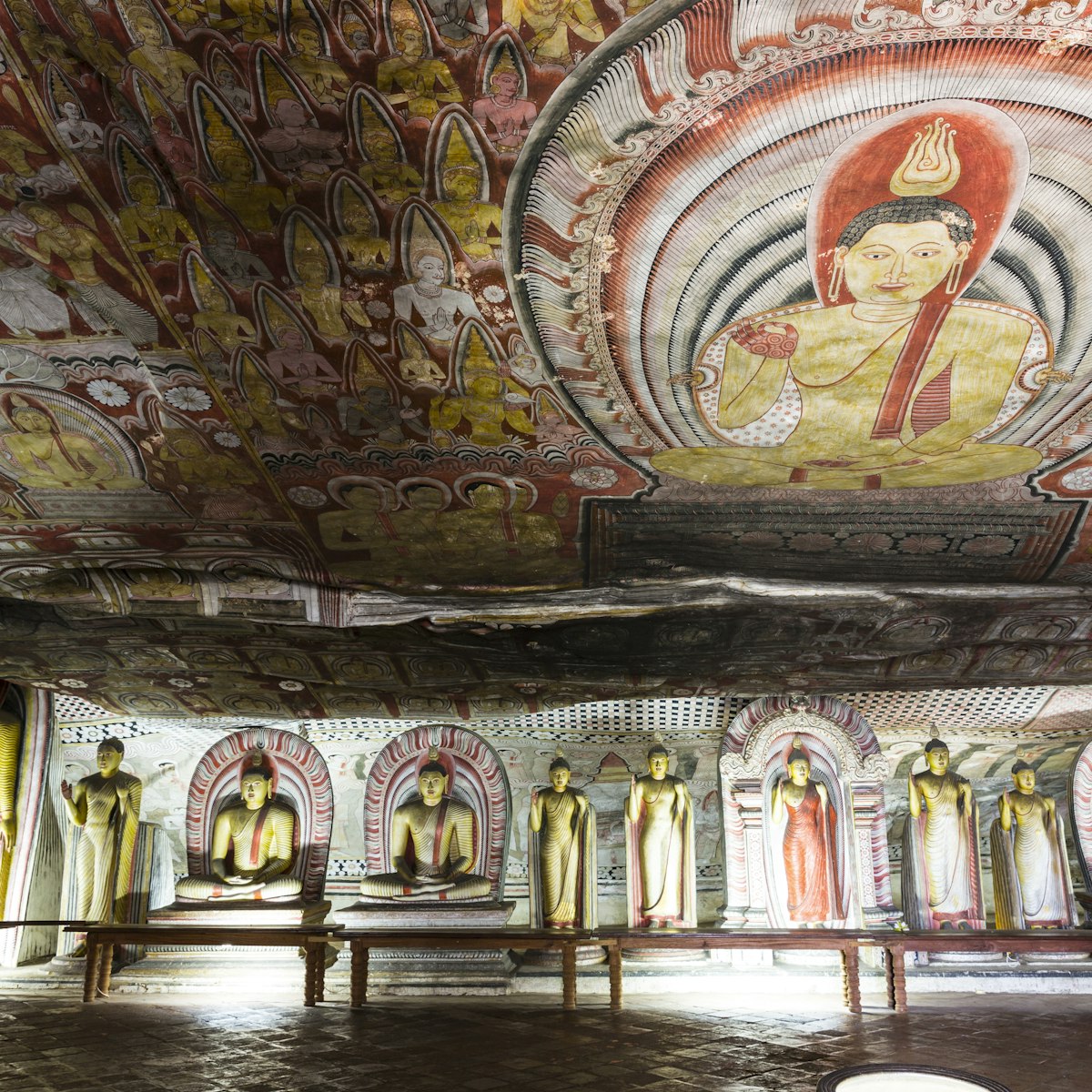Construction of the dagoba Kiri Vihara is credited to Subhadra, King Parakramabahu I’s queen. Originally known as the Rupavati Chetiya, the present name means ‘milk white’ because when the overgrown jungle was cleared away after 700 years of neglect, the original lime plaster was found to be in perfect condition. It is still the best-preserved unrestored dagoba at Polonnaruwa.
Lonely Planet's must-see attractions

0.21 MILES
Part of Parakramabahu I’s northern monastery, Gal Vihara is a group of beautiful Buddha images that probably marks the high point of Sinhalese rock…

25.4 MILES
The beautiful Royal Rock Temple complex sits about 160m above the road in the southern part of Dambulla. Five separate caves contain about 150 absolutely…

16.71 MILES
The spectacular terraced summit of the rock covers 1.6 hectares. This is thought to be the site chosen by King Kasyapa for his fortified capital after he…

0.09 MILES
One of the most evocative structures in Polonnaruwa, the Lankatilaka temple was built by Parakramabahu I and later restored by Vijayabahu IV. This massive…

0.99 MILES
A short stroll north of the Royal Palace ruins, the area known as the Quadrangle is literally that – a compact group of ruins in a raised-up area bounded…

16.76 MILES
Halfway up the Sigiriya rock an open-air spiral stairway leads to a long, sheltered gallery in the sheer rock face. The paintings of the buxom, wasp…

0.33 MILES
The 54m Rankot Vihara dagoba, the largest in Polonnaruwa and the fourth largest on the island, has been ascribed to the reign of King Nissanka Malla. Like…

16.66 MILES
This prominent rock about 1km north of the Sigiriya site, offers amazing views of Sigiriya from its wide summit. It's a 20-minute hike up to the top, past…
Nearby Polonnaruwa attractions
0.09 MILES
One of the most evocative structures in Polonnaruwa, the Lankatilaka temple was built by Parakramabahu I and later restored by Vijayabahu IV. This massive…
0.15 MILES
Set on a natural ridge, this was the monastery’s convocation hall, where monks met fortnightly. This building features a fine mandapaya (raised platform…
0.21 MILES
Part of Parakramabahu I’s northern monastery, Gal Vihara is a group of beautiful Buddha images that probably marks the high point of Sinhalese rock…
0.33 MILES
The 54m Rankot Vihara dagoba, the largest in Polonnaruwa and the fourth largest on the island, has been ascribed to the reign of King Nissanka Malla. Like…
0.41 MILES
This minor Hindu site is outside the main archaeological area and can easily be skipped.
0.42 MILES
This minor Hindu site is outside the main archaeological area and can easily be skipped.
0.43 MILES
This minor Hindu temple is one of Polonnaruwa's many Indian-influenced temples.





